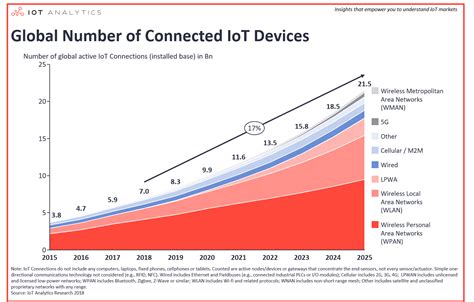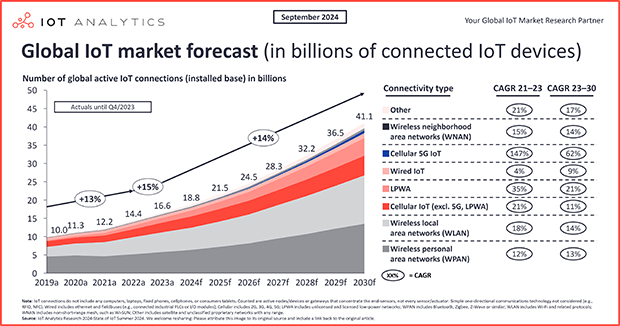The Internet of Things (IoT) is transforming industries and daily life by enabling seamless data exchange and automation across interconnected devices. For legal professionals, understanding the legal implications of these advancements is crucial. Staying informed about cutting-edge IoT research can provide valuable insights into issues such as privacy, security, and regulatory challenges. This article highlights the top 10 must-read IoT research papers of 2024 for legal experts. These papers offer essential knowledge and guidance on navigating the evolving landscape of IoT, ensuring that legal professionals are equipped to address emerging legal concerns and effectively advise their clients.
alijyun.com will lead an exploration of this topic in detail.
8 Keys Outline for “Top 10 Must-Read IoT Research Papers for Legal Professionals in 2024”
8 Key Points for “Top 10 Must-Read IoT Research Papers for Legal Professionals in 2024”
Introduction
Overview of IoT’s impact on various sectors.
Importance of IoT research for legal professionals.
Objectives of the article.
Criteria for Selection
Explanation of how papers were chosen.
Focus on relevance to legal issues, privacy, security, and regulation.
Paper #1: Title, Author(s), and Summary
Brief overview of the paper’s focus.
Key findings and their relevance to legal professionals.
Paper #2: Title, Author(s), and Summary
Brief overview of the paper’s focus.
Key findings and their relevance to legal professionals.
Paper #3: Title, Author(s), and Summary
Brief overview of the paper’s focus.
Key findings and their relevance to legal professionals.
Paper #4: Title, Author(s), and Summary
Brief overview of the paper’s focus.
Key findings and their relevance to legal professionals.
Paper #5: Title, Author(s), and Summary
Brief overview of the paper’s focus.
Key findings and their relevance to legal professionals.
Conclusion
Recap of the importance of the highlighted papers.
Encouragement to engage with IoT research for better legal practice.

1. Why IoT Research is Important for Legal Professionals
The Internet of Things (IoT) is rapidly evolving, fundamentally changing how data is gathered, disseminated, and utilized across interconnected devices. For legal professionals, staying informed about IoT research is paramount, given the significant legal implications arising from these technological advancements. As IoT devices often manage sensitive personal and business data, concerns about privacy, data protection, and cybersecurity are heightened. Legal experts must be well-versed in the latest research to navigate the intricate regulatory landscape, address emerging legal challenges, and provide informed counsel to their clients. Furthermore, IoT research sheds light on new legal precedents and regulatory trends, enabling legal professionals to anticipate and adapt to changes in the law. Engaging with up-to-date IoT research equips legal professionals to effectively address the evolving issues of digital privacy, compliance, and liability.

2. How IoT Impacts Regulatory and Compliance Issues
The rapid growth of the Internet of Things (IoT) presents a significant challenge to regulatory and compliance landscapes. This is due to the introduction of new issues surrounding data privacy, security, and liability. As IoT devices gather and transmit vast quantities of personal and business information, concerns regarding unauthorized access, data breaches, and misuse arise. Regulators face the complex task of creating and enforcing standards that safeguard individual privacy while encouraging innovation. Compliance with these regulations becomes intricate as IoT ecosystems often span multiple jurisdictions with diverse legal frameworks. Furthermore, the integration of IoT into critical infrastructure and daily operations increases the potential for legal liabilities in the event of system failures or security breaches. Legal professionals must remain current on the ever-changing regulatory landscape and emerging standards to ensure their clients’ IoT implementations comply with applicable laws and best practices. Understanding the impact of IoT on regulatory and compliance issues is crucial for effectively navigating the intersection of technology and law.

3. What Legal Challenges Arise from IoT Integration
The adoption of Internet of Things (IoT) technology brings forth a number of legal challenges demanding close attention. One pressing concern is data privacy. IoT devices gather a vast amount of personal and sensitive data, raising questions regarding its storage, protection, and usage. Legal complexities arise when ensuring compliance with privacy laws and regulations like the General Data Protection Regulation (GDPR) and the California Consumer Privacy Act (CCPA). Another significant challenge is cybersecurity. As IoT devices become increasingly interconnected, they present numerous vulnerabilities to cyberattacks and data breaches, potentially exposing companies to substantial legal liabilities if they fail to adequately secure their systems.
The integration of IoT introduces intricate challenges related to liability and accountability. Assigning responsibility for damages stemming from device malfunctions or failures becomes problematic, especially when numerous entities like manufacturers, service providers, and third-party developers are involved. Moreover, intellectual property concerns emerge, as IoT technologies frequently employ proprietary algorithms and systems, potentially leading to disputes over patents and copyrights.
To effectively address the complexities of the Internet of Things (IoT), legal professionals must remain informed about the latest legal developments, acquire a comprehensive understanding of IoT’s technical intricacies, and guide clients in implementing risk management strategies that minimize potential legal liabilities.
4. Why Staying Updated with IoT Developments is Critical
The rapid evolution of IoT technology and its evolving legal implications make it crucial for legal professionals to stay informed. As new devices and applications emerge at a pace often exceeding regulatory updates, gaps in legal frameworks arise. By diligently tracking the latest research and trends, legal experts can proactively identify and address emerging issues like data privacy, cybersecurity, and compliance, preventing them from escalating into major problems.
Furthermore, the evolving landscape of IoT frequently gives rise to new regulatory standards and legal precedents. By understanding these changes, legal professionals can provide informed advice, guarantee their clients’ compliance with existing laws, and adapt to evolving legal requirements. Staying abreast of these developments also enables the identification and mitigation of potential legal risks associated with IoT integration, safeguarding clients from liabilities and disputes. Ultimately, continuous engagement with IoT advancements equips legal professionals to adeptly navigate the complex intersection of technology and law, positioning them at the forefront of addressing emergent legal challenges.
5. How to Choose the Most Relevant IoT Research Papers
Identifying the most relevant IoT research papers for legal professionals requires careful consideration. To ensure the selected studies offer valuable insights, prioritize papers that directly address specific legal issues related to IoT. These issues include data privacy, cybersecurity, and regulatory compliance. Research that delves deeply into these areas will prove most beneficial for understanding the legal implications of IoT technologies.
When evaluating sources, pay close attention to their credibility and authority. Prioritize research published in respected journals or by renowned experts in the fields of IoT and law. Papers of high caliber typically originate from esteemed institutions or authors who possess extensive experience in both IoT and legal scholarship.
Moreover, it is crucial to assess the recency of the research. Given the rapid evolution of IoT technology, prioritizing recent publications guarantees access to the most up-to-date information, encompassing current trends and regulatory developments.
Lastly, assess the paper’s applicability to particular legal fields or industries. Research exploring IoT applications within sectors directly related to your clientele or practice area will prove more valuable for delivering tailored advice and guidance. By applying these selection criteria, legal professionals can identify research that bolsters their comprehension of IoT-related legal challenges and solutions.
6. What Trends in IoT Research Are Shaping Legal Perspectives
The evolving landscape of IoT research is profoundly impacting legal perspectives. This is particularly evident in the realm of privacy and data protection. As researchers delve into methods for safeguarding personal information gathered by IoT devices, they are driving legal discourse surrounding compliance with existing privacy laws and the need for new regulations.
A significant trend is the growing emphasis on cybersecurity research. With the increasing interconnectedness of Internet of Things (IoT) devices, the vulnerability to cyberattacks and data breaches is escalating. Research in this field is fostering the development of more robust security protocols and shaping legal frameworks for safeguarding against cyber threats.
Furthermore, investigations into the liability and accountability implications of IoT are gaining momentum. Researchers are exploring how responsibility for device failures and malfunctions should be distributed among manufacturers, service providers, and users, influencing legal frameworks for product liability and consumer protection.
Finally, the burgeoning field of IoT is prompting a reevaluation of regulatory models and frameworks. Researchers are developing fresh approaches to effectively govern the IoT ecosystem, which is shaping the way laws are drafted and enacted. Keeping abreast of these developments enables legal professionals to anticipate and respond to the emerging legal issues within the IoT sphere.
7. Why These Papers are Must-Reads for 2024
These papers are essential reading for 2024, offering crucial insights into the ever-changing relationship between IoT technology and the law. With the continued evolution of IoT, new legal challenges and regulatory demands are arising. It is vital for legal professionals to stay abreast of these developments. The chosen papers provide in-depth examinations of the latest trends in data privacy, cybersecurity, and regulatory compliance, giving valuable guidance for navigating this complex legal environment.
Written by leading experts and published in respected journals, these papers offer high-quality, reliable information. They delve into critical issues like evolving privacy laws, cybersecurity threats, and liability concerns, equipping legal professionals with the insights necessary to navigate the shifting regulatory landscape. By engaging with these essential resources, legal experts can expand their knowledge, stay ahead of regulatory changes, and effectively advise their clients on mitigating legal risks associated with the Internet of Things.
In conclusion, staying abreast of the latest IoT research is essential for legal professionals navigating the rapidly evolving landscape of interconnected devices. The top 10 papers highlighted offer crucial insights into data privacy, cybersecurity, and regulatory compliance. By engaging with this research, legal experts can stay informed about emerging trends and challenges, ensuring they are well-equipped to address IoT-related legal issues and provide effective counsel in 2024 and beyond.
alijyun.com

